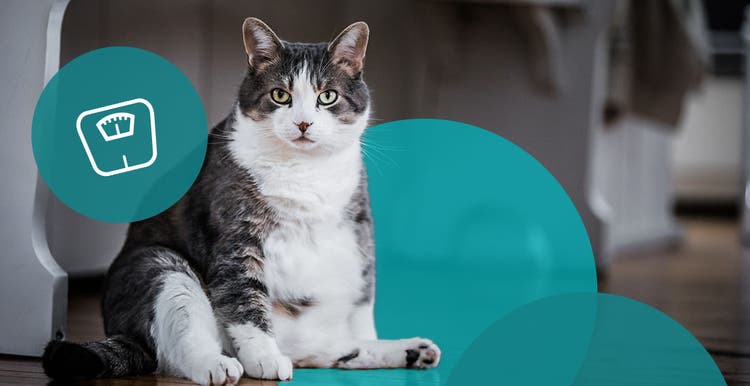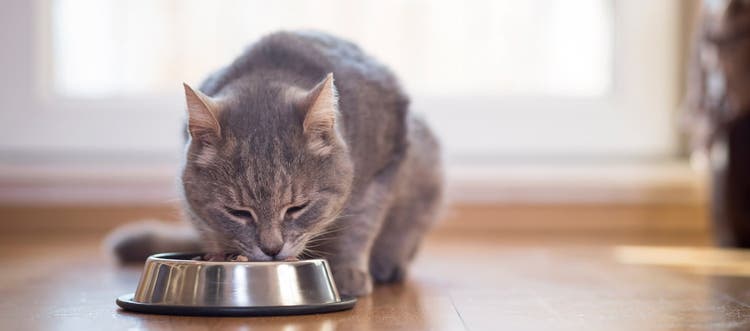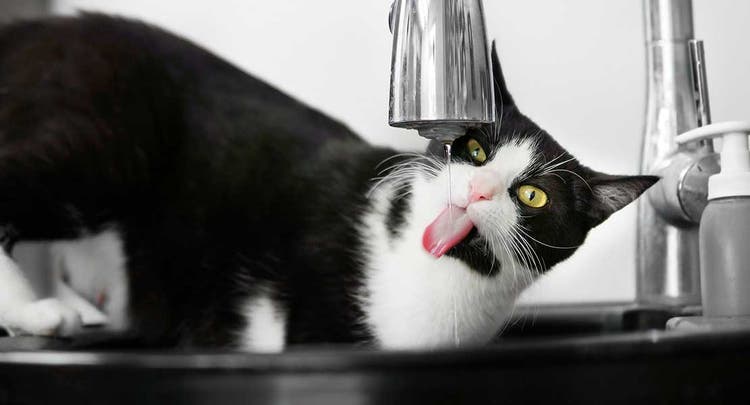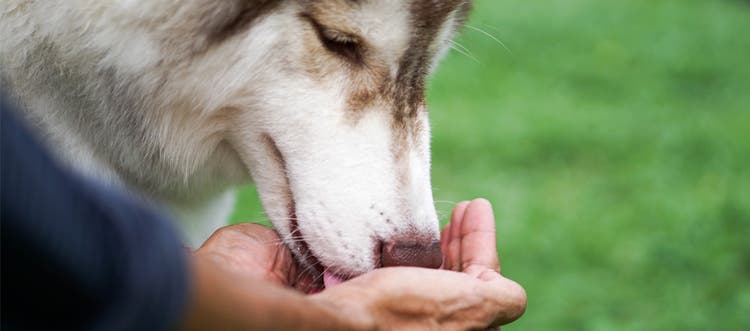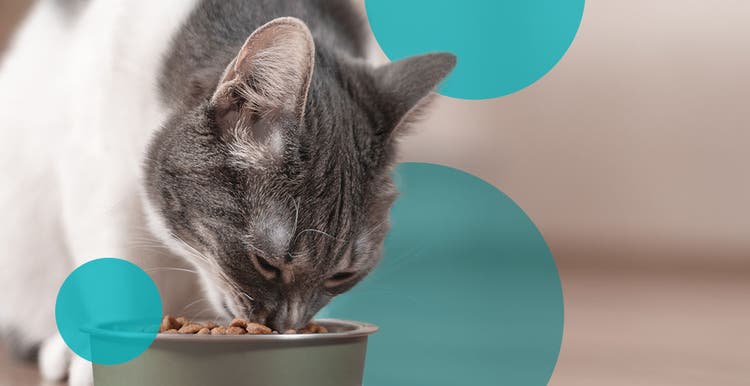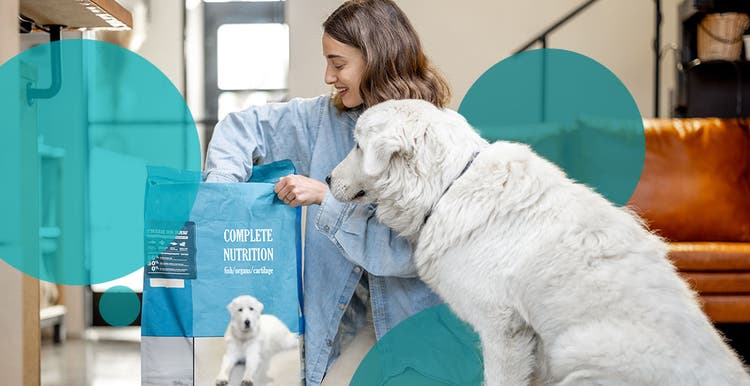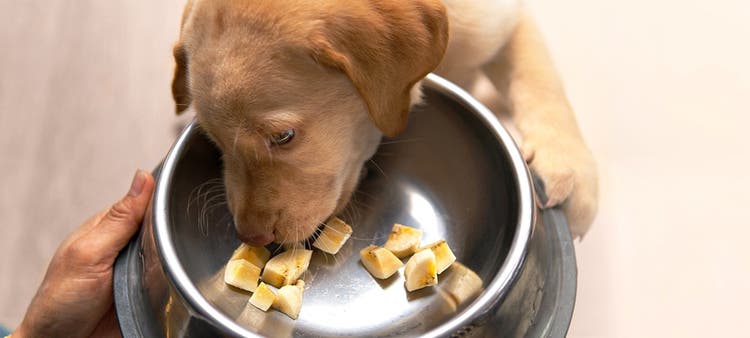How extra weight can affect dogs and cats.
If you’re concerned about your pet’s weight, you’re not alone: In the United States, an estimated 60% of cats and 56% of dogs could stand to shed more than just fur, according to the Association for Pet Obesity Prevention.1 But how can you tell whether your cat or dog is overweight? And how can you ensure your pet maintains a healthy weight? Read on for tips.
How to Tell If Your Dog or Cat Is Overweight
Your pet might be overweight if:
- You can’t feel their ribs. You should be able to feel your pet’s ribs when applying light pressure to their sides. If you can’t find them easily, your pet may be overweight.
- You can’t see a visible waist when looking at your pet from above. No matter the breed of cat or dog, a pet’s body should narrow somewhat just after the ribs and before the hips. (For pets with thick coats, you’ll have to feel for this with your hands.) If your cat’s or dog’s body doesn’t taper at all — or if it’s shaped like an egg — it could be time to cut back on treats.
- They get out of breath easily. Is your dog panting after a brief walk on a mild day? Does your cat stop playing after a few minutes to lie down? It’s likely they’re carrying too much weight, but be sure to check with your vet to rule out any other underlying conditions for this symptom. Shortness of breath is a common sign of many illnesses in our pets, just as in humans.
- They struggle to groom or scratch themselves. Overweight animals often have trouble reaching all areas of their bodies, which can lead to grooming issues (think matted fur on long-haired cats or dogs).
- They avoid jumping or using the stairs. If your cat no longer jumps up onto counters, windowsills or other higher surfaces, it could indicate that they’re overweight. And if your dog struggles with stairs or completely avoids them, it may be because they’re carrying too much weight. However, both of these behaviors could stem from other health issues, so check with your vet if you’re unsure.
Being overweight for their natural frame puts your pet at a greater risk for heart disease, diabetes and arthritis, so it's important to help an overweight pet shed extra pounds. The goal should always be safe, gradual weight loss, especially for cats. We recommend working with your veterinarian to create a weight-loss strategy for your pet, but if your dog or cat needs to lose weight in the meantime, explore our guide to pet weight loss.
How Can You Prevent Your Pet from Becoming Overweight?
It’s easier to keep your dog or cat from gaining weight than it is to help them lose it. Pets bring many health benefits to their owners, so why not return the favor? Here are some ways to ensure your pet doesn’t get too heavy for their breed or body size in the first place.
- Don’t free-feed your pet. Pet foods typically include a feeding guide on the bag or can with the correct portions based on the specific food and your pet’s weight range. Use a measuring cup when putting food into the bowl so you know the exact amount of food you’re providing.
- Don’t give your cat or dog table scraps. While it’s convenient when your pet licks the plates clean, the extra calories in human food won’t help them stay fit.
- Incorporate daily play time. Whether it’s a long walk or playing with a toy, make activity a daily part of your pet’s life. While this is not as easy with cats, using interactive chase toys can help keep cats active and stimulated.
- Monitor your pet’s weight. Weigh your cat or dog regularly to keep an eye out for increases. It’s much easier to spot and quickly lose a small amount of weight than a large amount over the long term. Many pet stores have scales designed just for pets, especially for cats and small dogs.
For many overweight pets, the key to achieving a healthy body weight is a loving and committed owner. With just a few changes and some perseverance, you can help your pet live a happier and healthier life.
